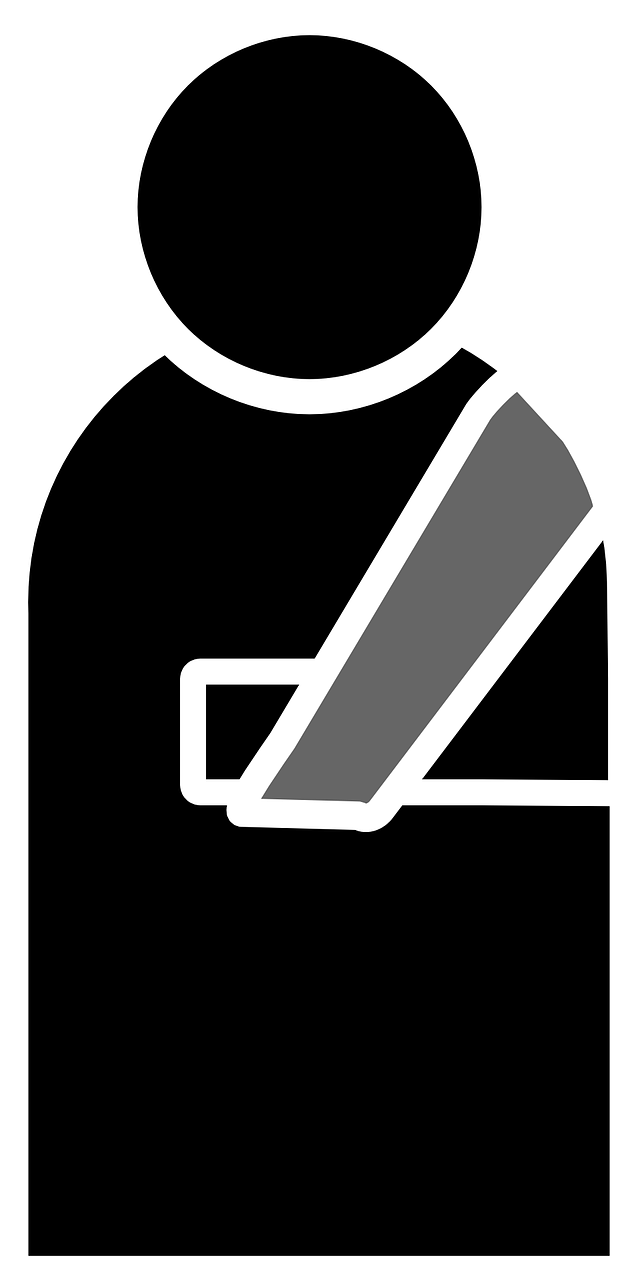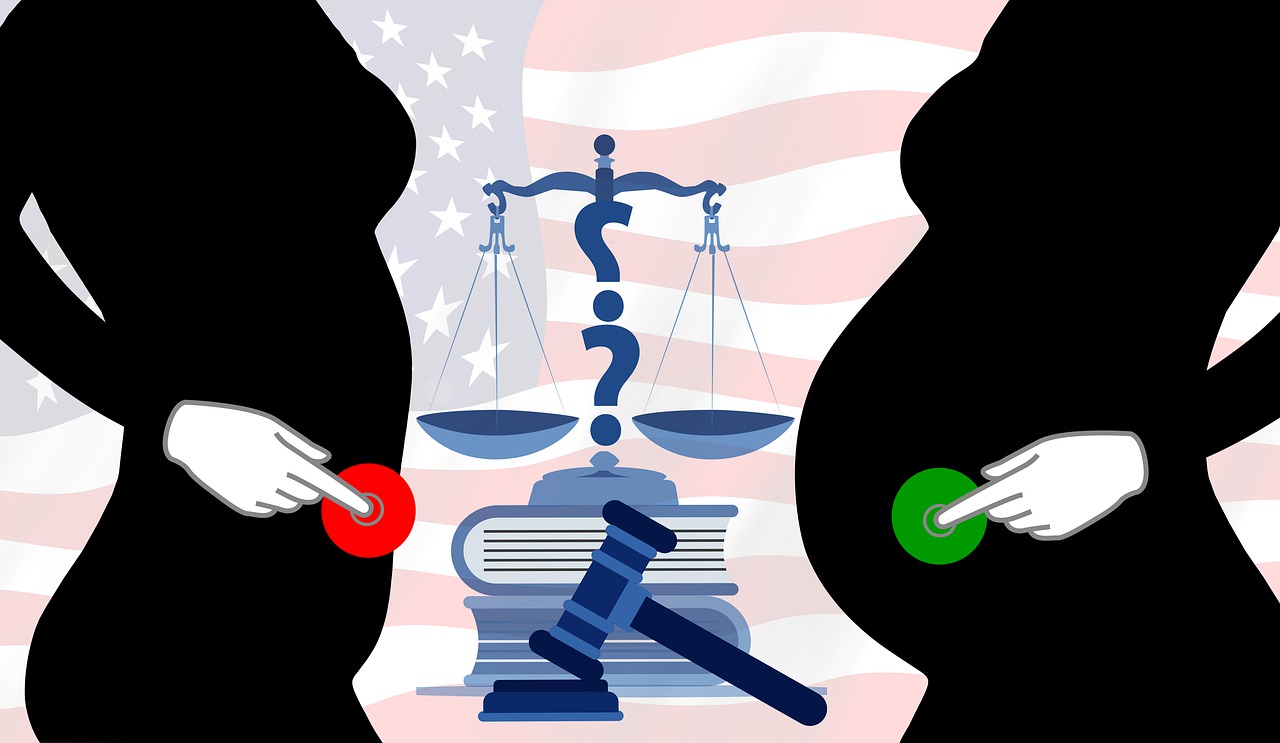As a business lawyer in the State of Utah, it is crucial that you have a comprehensive understanding of the medical practice laws and regulations governing this field. In this article, we aim to provide you with an exhaustive overview of these laws to equip you with the knowledge necessary to navigate the complexities of this area. By delving into the intricacies of Utah’s medical practice laws, we will explore various key aspects such as licensing requirements, scope of practice, and disciplinary actions. With this in-depth understanding, you will be better prepared to serve as a trusted legal advisor and advocate for your clients in the healthcare industry.

Overview of Utah’s Medical Practice Laws and Regulations
Utah’s medical practice laws and regulations are a comprehensive set of rules and guidelines that govern the practice of medicine in the state. These laws and regulations define the parameters within which medical professionals must operate, ensuring the safety and well-being of patients. It is crucial for medical professionals to have a thorough understanding of these laws to ensure compliance and provide high-quality care.
Definition of Medical Practice
Medical practice refers to the provision of medical services by licensed professionals, including physicians, surgeons, nurses, and other healthcare providers. It encompasses a wide range of activities, such as diagnosing and treating illnesses, performing surgeries, prescribing medications, and providing preventive care.
Importance of Understanding the Laws and Regulations
Understanding Utah’s medical practice laws and regulations is essential for medical professionals to protect both themselves and their patients. By adhering to these laws, medical professionals can maintain the highest standards of patient care and avoid legal and professional consequences. Additionally, compliance with these laws helps establish trust and confidence among patients and the broader healthcare community.
Governing Bodies and Agencies
Utah’s medical practice laws and regulations are overseen by various governing bodies and agencies. The primary authority responsible for regulating medical professionals is the Utah Division of Occupational and Professional Licensing (DOPL). DOPL, along with the Board of Medical Examiners, ensures that medical professionals meet the necessary qualifications, grants licenses, and disciplines those who violate the laws.
Updates and Changes to the Laws
It is crucial for medical professionals to stay up to date with the latest updates and changes to Utah’s medical practice laws. The laws and regulations are subject to periodic revisions to address emerging issues and advancements in medical practices. By staying informed about these updates, medical professionals can ensure that their practices align with the most current legal requirements.
Licensing and Credentialing
To practice medicine in Utah, medical professionals must meet specific requirements for licensing and credentialing. These requirements aim to ensure that only qualified individuals provide medical care. The Utah Board of Medical Examiners, under the authority of DOPL, is responsible for overseeing the licensing process for physicians and other medical professionals.
Requirements for Medical Professionals
Medical professionals in Utah must meet certain educational, residency, and examination requirements to obtain a license. These requirements typically include completing an accredited medical school program, participating in a residency program, and passing the United States Medical Licensing Examination (USMLE) or a similar licensing exam.
Board of Medical Examiners
The Utah Board of Medical Examiners plays a significant role in the licensing and regulation of medical professionals. The Board is composed of physicians and public members who evaluate license applications, enforce disciplinary actions for violations, and establish guidelines for ethical medical practice.
Application Process
The application process for a medical license in Utah involves submitting a comprehensive application to the Board of Medical Examiners. This application typically includes providing educational transcripts, proof of completion of residency, letters of recommendation, and professional references. Upon review and approval of the application, a medical license is granted.
Renewal and Maintenance of Licenses
Once obtained, the medical license must be renewed periodically to maintain legal authorization to practice medicine in Utah. Medical professionals must fulfill continuing education requirements, adhere to professional standards, and pay renewal fees to ensure their license remains active. Failure to renew or comply with these requirements may result in the suspension or revocation of the license.
Scope of Practice
The scope of practice refers to the specific activities and responsibilities that medical professionals are authorized to perform within their field. Understanding the scope of practice is essential for medical professionals to ensure they are practicing within the boundaries of their licensure and training.
Defining the Scope of Practice
The specific scope of practice for each medical profession in Utah is outlined in the state’s laws and regulations. These regulations define the specific activities, procedures, and treatments that medical professionals are authorized to perform. It is essential for medical professionals to familiarize themselves with these regulations to ensure they provide appropriate and authorized care.
Authorized Activities
Within their respective scope of practice, medical professionals in Utah are authorized to perform a range of activities. This includes diagnosing medical conditions, prescribing medications, performing surgeries, providing counseling, ordering and interpreting medical tests, and offering preventive care. By adhering to authorized activities, medical professionals can ensure quality care while avoiding potential legal implications.
Restrictions and Limitations
Utah’s medical practice laws also establish restrictions and limitations on certain medical activities. For example, some procedures may require specialized certification or additional training. Additionally, certain medical practices, such as prescribing controlled substances, may require compliance with stricter regulations and monitoring protocols. Medical professionals must be aware of these restrictions and comply with them to avoid legal consequences.
Collaborative Agreements and Supervision
In some cases, medical professionals in Utah may be required to enter into collaborative agreements or work under supervision. This typically occurs in situations where a medical professional is practicing as an advanced practice registered nurse (APRN) or a physician assistant (PA). These collaborative agreements help ensure accountability and quality care by providing oversight and guidance from licensed physicians.
Medical Malpractice Laws
Medical malpractice refers to the negligence or improper conduct of a medical professional that causes harm or injury to a patient. Understanding Utah’s medical malpractice laws is crucial for both medical professionals and patients.
Elements of a Medical Malpractice Claim
In Utah, a medical malpractice claim must demonstrate four key elements: duty, breach of duty, causation, and damages. A successful claim requires establishing that the medical professional owed a duty of care to the patient, breached that duty through negligence or wrongful actions, and that the breach directly caused the patient’s injury or harm.
Statute of Limitations
Utah has specific statutes of limitations that determine the timeframe within which a medical malpractice claim must be filed. Generally, a claim must be filed within four years of the date the injury occurred or within two years of discovering the injury, whichever occurs first. Failure to file within the statute of limitations can result in the claim being barred from recovery.
Damage Caps
Utah imposes certain limitations, or caps, on the amount of damages that can be awarded in a medical malpractice lawsuit. These caps vary depending on the type of damages, such as economic, non-economic, or punitive damages. It is important for both medical professionals and patients to understand these limitations when pursuing or defending a medical malpractice claim.
Liability of Healthcare Institutions
In addition to individual medical professionals, healthcare institutions may also be held liable for medical malpractice in Utah. Hospitals, clinics, and other healthcare facilities can be held responsible for the actions of their employees under certain circumstances. This concept, known as vicarious liability or respondeat superior, holds healthcare institutions accountable for the negligence or wrongful acts of their staff.
Patient Rights and Informed Consent
Patients have certain rights, and medical professionals have a legal obligation to respect and uphold these rights. Understanding patient rights and informed consent is crucial for medical professionals to provide ethical and legally compliant care.
Rights of Patients
Among the rights afforded to patients in Utah are the right to receive appropriate treatment, the right to refuse treatment, the right to privacy and confidentiality, the right to access medical records, and the right to participate in decisions regarding their healthcare. Medical professionals must respect these rights and ensure they are adequately communicated to the patient.
Requirement for Informed Consent
Informed consent is a legal and ethical requirement that ensures patients are fully informed about the risks, benefits, and alternatives of a proposed medical procedure or treatment. Medical professionals in Utah must obtain the patient’s informed consent before proceeding with any non-emergency medical intervention. This includes explaining the nature of the procedure, potential complications, and available alternatives.
Exceptions to Informed Consent
While informed consent is generally required, Utah recognizes certain exceptions in emergency situations or when a patient lacks the capacity to provide consent. In emergencies where immediate intervention is necessary to prevent serious harm or save a patient’s life, medical professionals may proceed without obtaining formal informed consent. However, they must still act in the patient’s best interests and document the emergency circumstances.
Patient Confidentiality
Medical professionals in Utah are bound by strict confidentiality requirements, which prohibit the disclosure of a patient’s medical information without consent. The Health Insurance Portability and Accountability Act (HIPAA) sets forth the standards for patient privacy and confidentiality. Medical professionals must ensure they protect patient confidentiality and only share medical information as permitted by law.
Telemedicine Regulations
In recent years, telemedicine has become a popular method of providing healthcare services remotely. Understanding Utah’s telemedicine regulations is important for medical professionals who engage in this practice.
Definition of Telemedicine
Telemedicine is the provision of healthcare services using electronic communication technologies, such as video conferencing, phone calls, or secure messaging. It allows medical professionals to evaluate, diagnose, and treat patients without an in-person visit. Utah law defines telemedicine and establishes guidelines for its practice.

Licensing and Registration Requirements
Medical professionals who wish to practice telemedicine in Utah must obtain the appropriate licenses and registrations. These requirements are similar to traditional medical practice licenses. Medical professionals must ensure they comply with these requirements to offer telemedicine services legally.
Prescribing Medication Remotely
Utah has specific regulations regarding prescribing medication through telemedicine. Medical professionals must adhere to these regulations and ensure they follow proper protocols and guidelines. It is crucial to verify patient identities, obtain appropriate medical histories, and comply with federal and state laws regarding prescribing controlled substances.
Reimbursement and Insurance Coverage
Telemedicine services in Utah are subject to reimbursement and insurance coverage policies. Medical professionals must understand these policies to ensure they receive proper reimbursement for their services. Additionally, patients should be informed about their insurance coverage for telemedicine visits to avoid unexpected expenses.
Controlled Substances and Prescribing Practices
The Utah Controlled Substances Act regulates the prescribing and administration of controlled substances. Medical professionals must familiarize themselves with these laws to ensure compliance and prevent unauthorized use or distribution of controlled substances.
Utah Controlled Substances Act
The Utah Controlled Substances Act establishes rules and regulations for the manufacture, distribution, and use of controlled substances in the state. It classifies drugs into different schedules based on their potential for abuse and medical use. Medical professionals must comply with the regulations specific to their practice and the controlled substances they prescribe.
Prescribing Regulations and Restrictions
Utah’s prescribing regulations outline the requirements for prescribing controlled substances. These regulations include obtaining appropriate licenses, maintaining records for controlled substances, and implementing safeguards to prevent misuse or diversion. Medical professionals must adhere to these regulations to ensure safe and responsible prescribing practices.
Prescription Monitoring Programs
Utah operates a Prescription Drug Monitoring Program (PDMP), which is designed to prevent prescription drug abuse and diversion. Medical professionals are required to report certain controlled substance prescriptions to the PDMP. They may also access the PDMP database to review a patient’s prescription history to identify potential risks or red flags.
Penalties for Non-Compliance
Non-compliance with Utah’s controlled substances and prescribing practices can result in severe penalties. Medical professionals who violate these laws may face disciplinary action, loss of license, criminal charges, fines, and imprisonment. It is paramount that medical professionals understand and adhere to these laws to avoid legal and professional consequences.
Health Insurance and Billing
Understanding Utah’s health insurance laws and regulations is essential for medical professionals to navigate the complexities of insurance coverage, provider contracts, billing, and coding practices.

Utah’s Health Insurance Laws
Utah has specific laws and regulations governing health insurance policies, including coverage requirements and consumer protections. Medical professionals must understand these laws to ensure that the services they provide are covered by insurance and to properly communicate with insurance providers and patients.
Provider Contract Requirements
Medical professionals often enter into contracts with insurance providers to participate in their networks and receive reimbursement for services rendered. These contracts have specific requirements and obligations that medical professionals must comply with, including billing guidelines, documentation requirements, and dispute resolution procedures.
Billing and Coding Regulations
Utah follows the Current Procedural Terminology (CPT) coding system for billing and documentation purposes. Accurate and ethical billing and coding practices are essential to facilitate proper reimbursement and prevent fraudulent or abusive billing practices. Medical professionals must ensure they understand these regulations and use the appropriate codes when submitting claims.
Medicare and Medicaid Guidelines
Medicare and Medicaid are federal healthcare programs that provide coverage to eligible individuals in Utah. Medical professionals who provide services to Medicare and Medicaid patients must adhere to federal guidelines and regulations. These guidelines include coverage limitations, documentation requirements, and billing procedures specific to the programs.
Professional Liability Insurance
Professional liability insurance, also known as medical malpractice insurance, is a crucial safeguard for medical professionals. It provides coverage in the event of a malpractice claim or lawsuit, protecting medical professionals from the financial burden of legal expenses and potential damages.
Importance of Professional Liability Insurance
Professional liability insurance is critical for medical professionals as it provides financial protection and peace of mind in the face of a malpractice claim. Without this coverage, medical professionals may be personally liable for legal expenses and damages, potentially jeopardizing their professional and personal assets.
Coverage Options
There are various coverage options available for professional liability insurance. Medical professionals should work with an experienced insurance provider to assess their specific needs and select the appropriate coverage. These options may include policy limits, coverage for legal defense costs, and tail coverage to protect against claims made after the policy has expired.
Choosing the Right Policy
Choosing the right professional liability insurance policy requires careful consideration of factors such as coverage limits, retroactive coverage, exclusions, and pricing. Medical professionals should work with an insurance agent who specializes in medical malpractice insurance to select a policy that meets their individual needs and provides adequate protection.
Claims Process
In the event of a medical malpractice claim, medical professionals need to understand the claims process for their professional liability insurance policy. This includes promptly notifying the insurance provider, gathering necessary documentation, cooperating with the insurance company’s investigation, and working with legal counsel. Effective navigation of the claims process helps ensure a fair and efficient resolution.
Compliance and Ethics
Compliance with laws, regulations, and ethical standards is paramount for medical professionals. Failure to comply can result in serious consequences, including legal action, loss of license, and damage to professional reputation.
Ensuring Compliance with Laws and Regulations
Medical professionals must establish systems and processes to ensure ongoing compliance with Utah’s medical practice laws and regulations. This includes staying informed about updates, maintaining accurate records, adhering to authorized practices, and participating in required continuing education. Regular monitoring and audits can help identify areas of non-compliance and facilitate corrective action.
Ethical Considerations for Medical Professionals
Medical ethics play a significant role in the practice of medicine. Medical professionals must prioritize patient welfare, withhold improper personal or financial gain, maintain patient confidentiality, and adhere to professional codes of conduct. Ethical decision-making and behavior are crucial for building trust with patients and the healthcare community.
Consequences of Non-Compliance
Non-compliance with laws, regulations, and ethical standards can have severe consequences for medical professionals. These consequences may include loss of licensure, disciplinary actions from regulatory boards, legal liability, damage to professional reputation, and financial penalties. Medical professionals must prioritize compliance to protect both themselves and their patients.
Resources and Support for Maintaining Compliance
Utah offers various resources and support systems to assist medical professionals in maintaining compliance with laws and regulations. These resources include educational programs, professional associations, legal services, and governmental agencies. Medical professionals should take advantage of these resources to stay informed, seek guidance, and address compliance concerns.
FAQ
-
What are the consequences of practicing medicine without a license in Utah? Practicing medicine without a license in Utah is a serious offense that can lead to criminal charges, fines, and imprisonment. Medical professionals must ensure they obtain and maintain the appropriate licenses to practice legally and ethically.
-
Are there limitations on the damages that can be awarded in medical malpractice lawsuits in Utah? Yes, Utah imposes caps on certain types of damages in medical malpractice lawsuits. These limitations vary depending on the type of damages claimed. It is important for both medical professionals and patients to understand these limitations when pursuing or defending a medical malpractice claim.
-
Is telemedicine covered by health insurance in Utah? Telemedicine is increasingly covered by health insurance in Utah. However, coverage may vary depending on the specific insurance plan and the services rendered. Patients and medical professionals should verify their insurance coverage for telemedicine visits to ensure proper reimbursement and avoid any unexpected expenses.
-
Can medical professionals in Utah prescribe controlled substances through telemedicine? Yes, medical professionals in Utah can prescribe controlled substances through telemedicine. However, they must comply with specific regulations and protocols governing the prescribing of controlled substances, including verifying patient identities and adhering to federal and state laws.
-
What are the potential penalties for non-compliance with Utah’s medical practice laws and regulations? Non-compliance with Utah’s medical practice laws and regulations can result in severe penalties for medical professionals. These penalties may include loss of license, disciplinary actions, criminal charges, fines, and imprisonment. It is crucial for medical professionals to prioritize compliance to avoid these consequences.
























